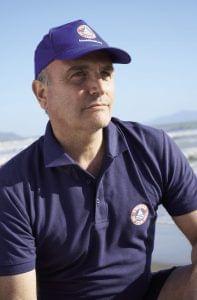Magazine: Nobody knows how far the 24th hour is
More and more companies, especially large firms with the necessary financial resources, realise that sustainability isn’t only important for their prestige, but it is also profitable in the long run. Many food companies make sustainability efforts, mainly in the rich countries, to win new customers, making pledges and adopting voluntary standards to reduce their ecological footprint.

Viktoria Kalinin
communications officer
FAO regional office
Europe and Central Asia
Viktoria Kalinin, communications officer in the FAO regional office for Europe and Central Asia, opines that the growing number of these standards can be a problem, as it is becoming difficult for both product manufacturers (especially for SMEs) and shoppers to judge how effective they are. Plus many SMEs are unable to allocate the financial resources to cover their costs. Ms Kalinin told: adopting the circular economy can’t only be done by implementing drastic, and to a certain extent recycling has been present in western economies for a long time. Still, the present systems are very complex and the social dimensions of sustainability aren’t dealt with in-depth. One thing is for sure, sustainability is the only way to supply the growing population of our planet with food and to manage the problems arising from the necessity to eat. UN member states are working on reaching sustainability objectives, with support from FAO and other international organisations. A good example of this is the FAO Save Food global initiative, in which already more than 1,000 companies participate.

Paolo Bray
igazgató
WSO
The World Sustainability Organization (WSO) has been active in the field of sustainability certifications for 30 years. In this period the attitude of companies and consumers toward the environment underwent a major change. According to Paolo Bray, founder and managing director of WSO, more and more companies choose working with suppliers that have the Friend of the Sea or the Friend of the Earth certification. The consumers of today expect manufacturers to produce sustainably, at the same time taking into consideration the interests of workers too. Due to this soon it will become obligatory for companies to have their manufacturing and sourcing practices audited by a third party, testifying that they are operating sustainably from an environmental and a social perspective. WSO evaluates the results of environmental efforts every year and sets new goals. They also support numerous green projects and campaigns.

Katalin Sipos
director
WWF Magyarország
WWF Magyarország believes the big question is: Do companies actually meet their voluntary sustainability objectives and are their results enough for making real changes? Katalin Sipos, country manager of WWF Magyarország stressed that it is of utmost importance to look behind the sustainability pledges of companies, because taking real responsibility starts at a company reducing its CO2 emission by as much as the average for companies in the sector, specified by the Paris climate agreement. Ms Sipos thinks today much more people are aware of the serious threats posed by the climate change than before. The corporate world is looking for ways to make changes but there are still many obstacles, e.g. the regulators, the lack of support, various taxes, etc. A global crisis should definitely be avoided and nobody knows how far we are from the 24th hour – this also depends on how fast the changes are made. All in all, the next 10-15 years are going to be critical.

András Wiszkidenszky
regional director and licence owner
Green Brand
Green Brands started in Germany and Austria: the programme rewards the eco-friendly and sustainable operations of companies with a trademark. It has been running in Hungary for a year now. András Wiszkidenszky, regional director and licence owner of the company informed our magazine that this April they had established the Green Brands Academy: its goal is to share knowledge and best practices in the field of sustainability with companies that wish to operate responsibly.


Gábor Lévai
manager and co-owner
Green Brands
They need to take part in six workshops – there were three before the summer, discussing issues such as the layer of consumers called LOHAS; the academy’s programme will continue with three workshops in the autumn, with topics such as modern technologies companies can use in environmental protection (in September), how widely will car and bicycle sharing will be used in cities five years from now (in October), and what is the state of play in responsible food production and consumption (in November). //
Related news
Henkel celebrates its 150th anniversary this year
🎧 Hallgasd a cikket: Lejátszás Szünet Folytatás Leállítás Nyelv: Auto…
Read more >Tork at SIRHA Budapest: hygiene, efficiency and sustainability for the HoReCa sector
🎧 Hallgasd a cikket: Lejátszás Szünet Folytatás Leállítás Nyelv: Auto…
Read more >Related news
A stable compass in the Hungarian FMCG sector for 20 years
🎧 Hallgasd a cikket: Lejátszás Szünet Folytatás Leállítás Nyelv: Auto…
Read more >Half of employees do not support salary transparency
🎧 Hallgasd a cikket: Lejátszás Szünet Folytatás Leállítás Nyelv: Auto…
Read more >







